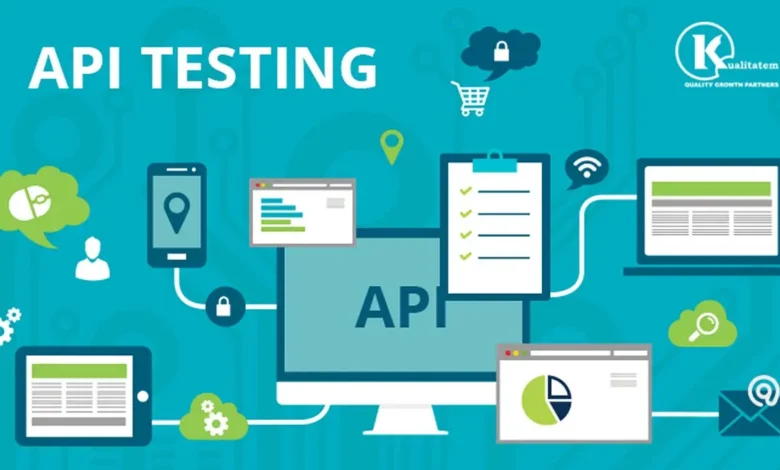Effective Strategies for Automated API Testing Training

Introduction
API allows the sharing of data and functionalities. However, with the growing complexity of applications, ensuring the reliability and functionality of APIs has become a critical aspect of the development process. So, this is where Automated API Testing plays a key role. Automated API Testing involves the use of specialized tools and frameworks to assess the functionality, reliability, performance, and security of APIs. Unlike manual testing, automated testing offers several advantages, including faster execution, repeatability, and the ability to handle complex scenarios. Therefore, the API Testing Online Course is crucial for achieving continuous integration and delivery, as it helps identify issues early in the development process. Thus, reducing the overall time and cost of software development.
[box type=”note” align=”” class=”” width=””]We are publish many interested topic on this Business News Tips[/box]
Effective Strategies for Automated API Testing Training
- [tie_list type=”lightbulb”]
- Establishing a Strong Foundation: Before diving into Automated API Testing, it is essential to ensure that the team has a solid understanding of basic testing concepts, software development life cycle (SDLC), and API fundamentals. So, this foundational knowledge forms the basis for more advanced concepts and techniques in Automated API Testing.
- Selecting the Right Tools and Frameworks: There is a wide range of tools and frameworks available for Automated API Testing. Such as Postman, Rest Assured, and Karate. Moreover, training should focus on selecting the most suitable tools based on the project requirements and the team’s skill set. Additionally, practical hands-on sessions with these tools can help participants gain proficiency and confidence.
- Creating Realistic Test Scenarios: To effectively train teams in Automated API Testing, it is crucial to design realistic test scenarios that mimic the complexities of a real-world application. Hence, these scenarios should cover various aspects, including positive and negative testing, data-driven testing, and handling different HTTP methods. Moreover, realistic scenarios enable team members to apply their knowledge in practical situations.
- Emphasizing Best Practices: Automated API Testing training should emphasize industry best practices to ensure that teams are following standardized approaches. So, this includes creating maintainable and scalable test suites, incorporating version control for test scripts, and implementing proper error-handling mechanisms. Furthermore, adhering to best practices helps in the long-term sustainability of Automated API Testing efforts.
- Integration with Continuous Integration/Continuous Deployment (CI/CD) Pipelines: One of the primary goals of Automated API Testing is to identify and address issues early in the development process. So, training should include integrating Automated API Tests into CI/CD pipelines. Hence, enabling automatic execution of tests whenever code changes are made. Therefore, this ensures rapid feedback and helps maintain the integrity of the software throughout the development lifecycle.
- Performance and Load Testing: Beyond functional API Testing Online Course, training should cover performance and load testing aspects of APIs. However, teams should be equipped to simulate different load conditions and assess how APIs perform under stress. Therefore, this is crucial for identifying potential bottlenecks and ensuring that APIs can handle varying levels of user activity.
- Security Testing: Given the rising concerns around data security, training should incorporate aspects of security testing for APIs. Additionally, teams need to understand common security vulnerabilities. Such as injection attacks and unauthorized access, and learn how to use tools that can identify and reduce these risks.
- Collaboration and Communication Skills: Effective collaboration is vital for successful Automated API Testing. So, training programs should focus on enhancing team members’ collaboration skills. Also, encouraging them to work closely with developers, quality assurance teams, and other stakeholders. Therefore, this encourages a collaborative approach to problem-solving and ensures that all aspects of API testing are adequately covered.
[/tie_list]
Conclusion
Automated API Testing is a critical component of modern software development. this is the reason why it is in demand among professionals. So, if you are looking for this course, API Testing Training in Noida is a good option. Moreover, training teams in this discipline is essential for ensuring the reliability and functionality of APIs. So, by establishing a strong foundation, selecting the right tools, creating realistic test scenarios, and emphasizing best practices, organizations can equip their teams with the skills needed to implement effective Automated API Testing.
Furthermore, integrating testing into CI/CD pipelines, covering performance and security aspects, and promoting collaboration and communication skills are key strategies for comprehensive training. So, as the software development landscape continues to evolve, a commitment to continuous learning and adaptation becomes paramount in mastering Automated API Testing.



